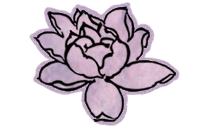By Rachel Kiene, LM, CPM
The birth of a baby creates a story. Every mother has one for each of her children. In the age of Facebook, many birth stories become public, or at least are shared among a wide circle of friends and acquaintances. Most often, they elicit “likes” and supportive comments from readers. But occasionally, reading a birth narrative in a public forum seems an invitation to offer our perspective, or even criticism of others’ choices.
When I was learning to be a doula, I would hear stories from women who had cesareans or difficult births and immediately think, “What would I have done differently?” The thought was natural. I sought a deeper understanding of the birth process and of how to support women. By identifying avoidable interventions and how they contributed to unwanted outcomes, I hoped to be able to guide my clients more confidently through the challenges of labor and birth. If I could see where things “went wrong”, I might offer thoughts about how things might have been different in a different setting or with a different care provider. But I quickly learned that many women did not welcome the idea that their baby’s birth could have been better.
When we hear or read a birth story, we have a responsibility. How we listen and respond does matter. When we jump to give feedback or to share our own stories, the mother may feel judged or misunderstood. When we listen patiently and choose our responses carefully, we honor the mother’s own healing and learning process.
Each mother’s birth story is a sacred part of her journey into motherhood. The work of bringing her baby into the world affects her identity as a mother. A woman who believes that her baby’s life was saved by surgery or technology has found a way to understand what may have been a negative or even traumatic experience in a positive light. If her friend, trying to be supportive, says, “You didn’t need surgery. You could have birthed your baby if you had been at home with a midwife,” she may hear, “You made the wrong decisions (about place of birth, care provider, when to go to the hospital, etc.) and therefore you caused unnecessary problems for yourself and your baby.” The idea that an epidural or other pain medication may have contributed to birth complications is especially sensitive. The mother may hear, “Your weakness and selfishness caused your baby’s distress/cesarean/vacuum birth/breastfeeding problems/etc.” Since women often share their birth stories in the early days and weeks, these responses may come at a time when she is especially vulnerable and trying to make sense of her experience.
It is very common for women to question the events of their own births. Even a woman who sees her birth as positive may have mixed feelings about some aspects of her experience. As friends, midwives, and doulas, what can we do?
· DO listen respectfully as she expresses her own thoughts and feelings about her birth.
· DON’T assume she is dissatisfied with her birth just because it doesn’t meet your ideal.
· DO answer her questions sensitively and soon return to listening rather than analyzing.
· DON’T offer your own assessment of “what went wrong”.
· DO continue to offer friendship and be available when she wants to talk about her birth.
· DON’T dismiss her feelings of guilt or disappointment, but help her see how she was strong and made the best choices for her baby given the circumstances and the information she had.
· DO refer her to resources such as the International Cesarean Awareness Network (ICAN), which connect women who have faced similar challenges.
· DO encourage her to see a trusted care provider or professional counselor if she is experiencing depression or post-traumatic stress disorder (PTSD). Postpartum Support International has many online resources including "Chat with an Expert" and local resources.
As midwives, we support many women who come to home birth and midwifery care because their previous births were unsatisfying, disappointing, negative, or traumatic. For some of them, the decision to approach birth differently came after months or years of processing. This is an ongoing journey. With a little sensitivity, we can give the mother space to grow into her own wisdom.
Originally Published in Birthstream Newsletter Spring 2015



